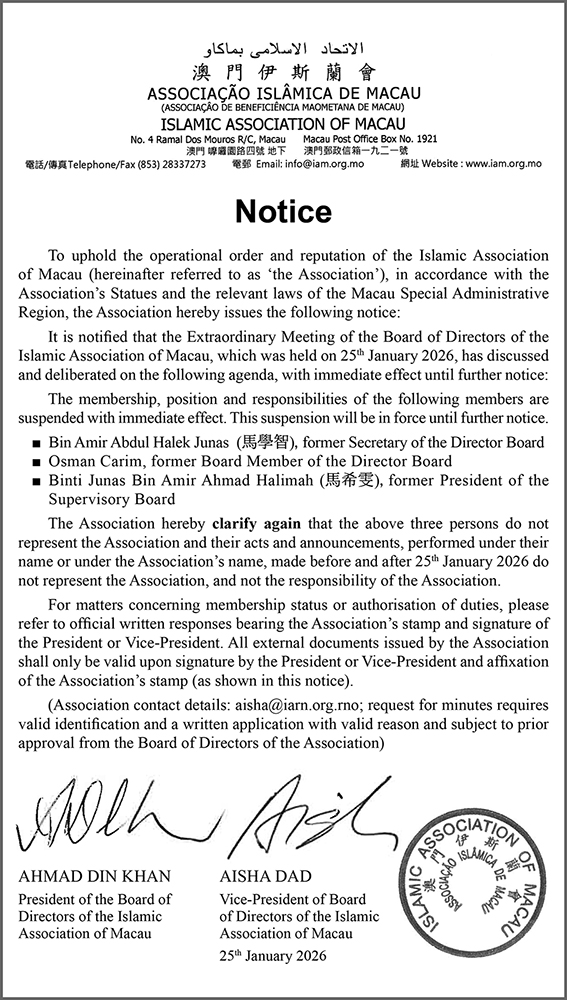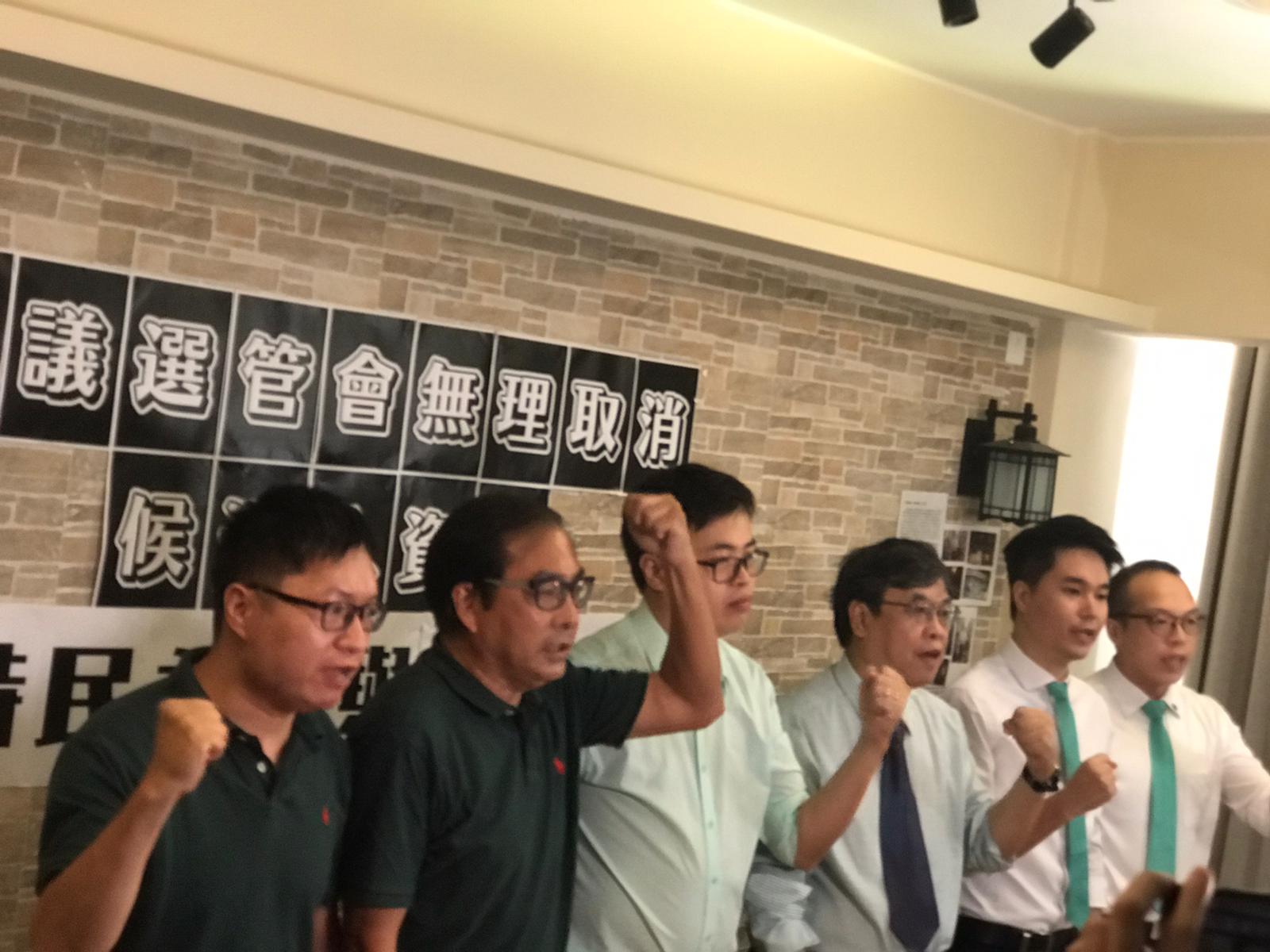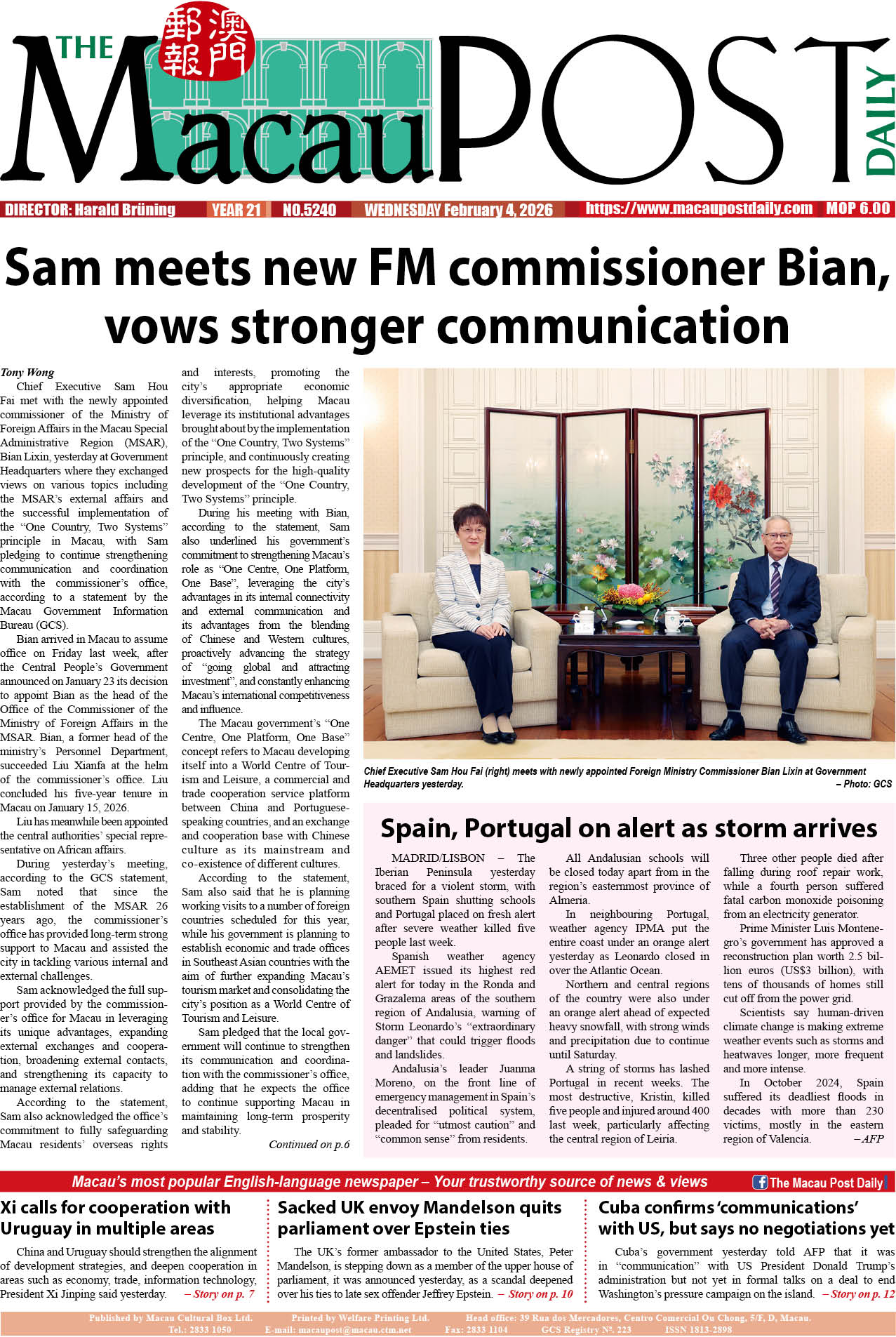A Hong Kong man, who had repeatedly sung songs in the neighbouring city suspected of posing a threat to national security, was arrested by the Public Security Police (PSP) last Sunday (September 3) for setting up busking equipment and singing to passers-by in the city centre without the local government’s authorisation, according to a PSP statement yesterday.
The statement said that the busker was granted a stay permit in Macau for the purpose of “tourism only”, adding that the Public Security Police have revoked his stay permit and deported him to his place of origin (Hong Kong) in accordance with the law and procedures after his conduct was found to have deviated significantly from the original purpose for which the stay permit was granted.
According to Hong Kong media reports, the man had been arrested in May 2021 in Hong Kong for performing an English rendition of protest song Glory to Hong Kong there one night.
In response to the allegations made by the busker in a post on social media platforms that Judiciary Police (PJ) officers had treated him impolitely while refusing to allow him to contact a lawyer, the Judiciary Police said in a statement yesterday that the allegations completely deviated from the objective facts, stressing that not only did PJ officers not act inappropriately at all but also explicitly told him that he could contact his lawyer. Indeed, the statement added, the man eventually decided against contacting a lawyer.
The man, who identified himself as Oliver Ma on his social media platforms, posted on Sunday that during his performance in a Macau street at 12:20 p.m. last Sunday, he was taken away by the police for questioning. His social media posts indicated that during the over 13-hour-long questioning by the police, he was forced to unlock his phone, refused a request to access his lawyer who was not in Macau, and was asked whether he had ever sung “Glory to Hong Kong” in public, describing himself as being treated as a “terrorist”.
Ma said that he had travelled to Macau with members of his family who, according to his version of events, were also detained. He said in his English-language posts: “My family was free to go at around 2 p.m. [on September 3]”, adding that shortly after they left, police officers instructed him to contact them to return to the police station.
In the post, Ma said that he was told the next day that he has been banned from entering Macau for a year.
According to the PJ statement, considering that the man had publicly sung songs that pose a threat to national security, the Public Security Police referred him to the Judiciary Police last Sunday for further questioning.
In the statement, the Judiciary Police reaffirmed that the investigation carried out by their officers was completely lawful, reasonable and in accordance with procedures, and his legitimate rights and interests were fully protected in the process, stressing that the allegations made by him have seriously affected their good reputation and image.
The Judiciary Police, according to the PJ statement, strongly condemn the man for fabricating facts and using social media and online media to slander their officers and, therefore, the Judiciary Police decided to sue the busker in line with Article 181 of the Macau Penal Code.
According to the article, anyone defaming the authorities faces a prison term of up to six month, or a fine.
According to sources of the Macau Lawyers Association (AAM), Ma is believed to be the first person to have been deported and barred from Macau for endangering national security.
Local Chinese online media reported yesterday that Ma is a Hong Kong busker and political activist of Filipino extraction. Ma describes himself on his YouTube channel as a “Chinese Filipino street performer in Hong Kong”.
This photo posted on Hong Kong busker Oliver Ma’s Facebook page on Sunday shows him being surrounded by Public Security Police (PSP) officers while busking without a permit near S. Domingos Church in the city centre.








